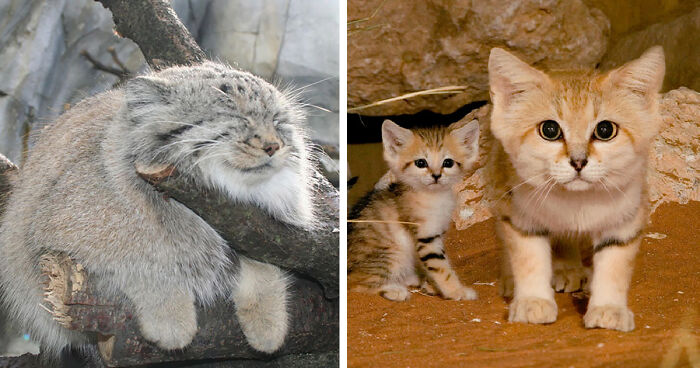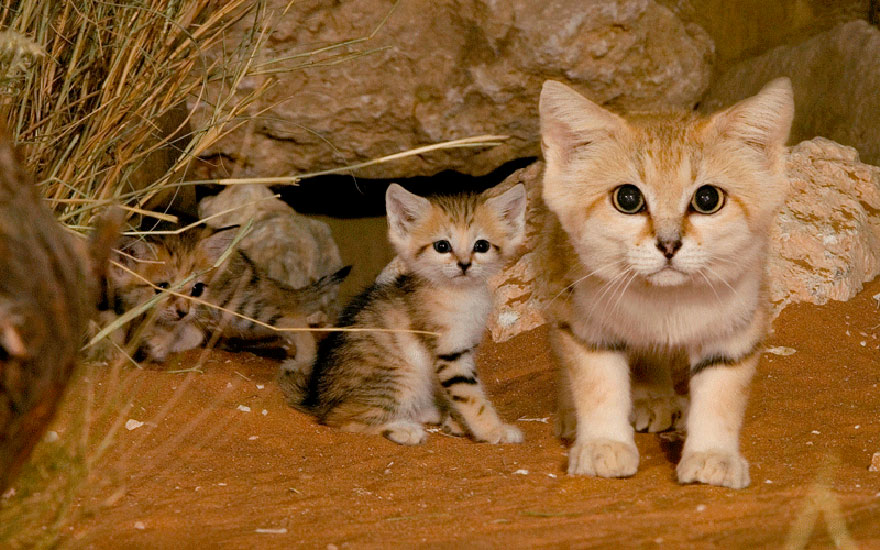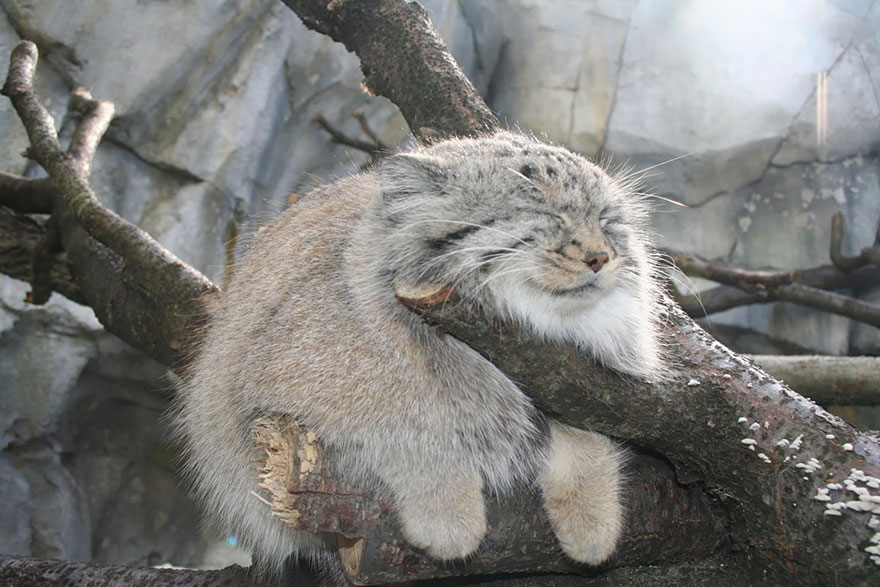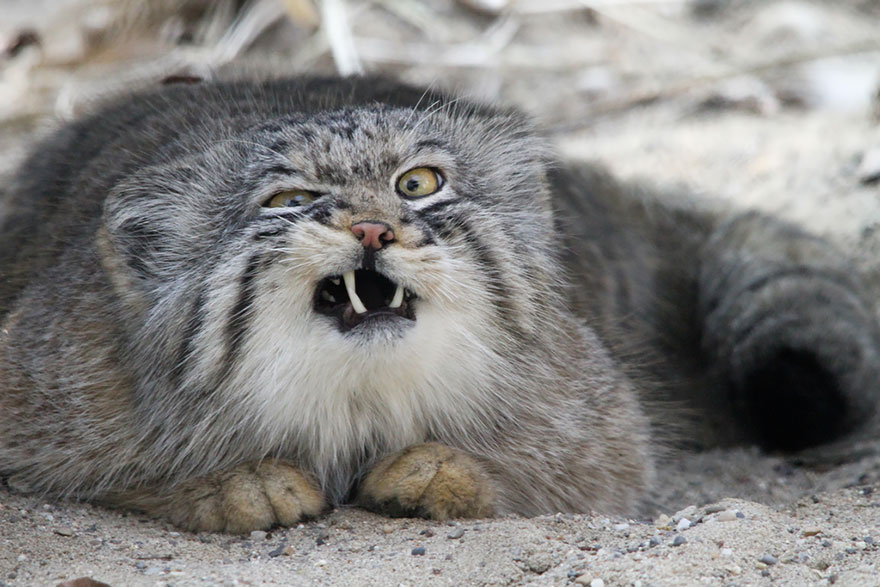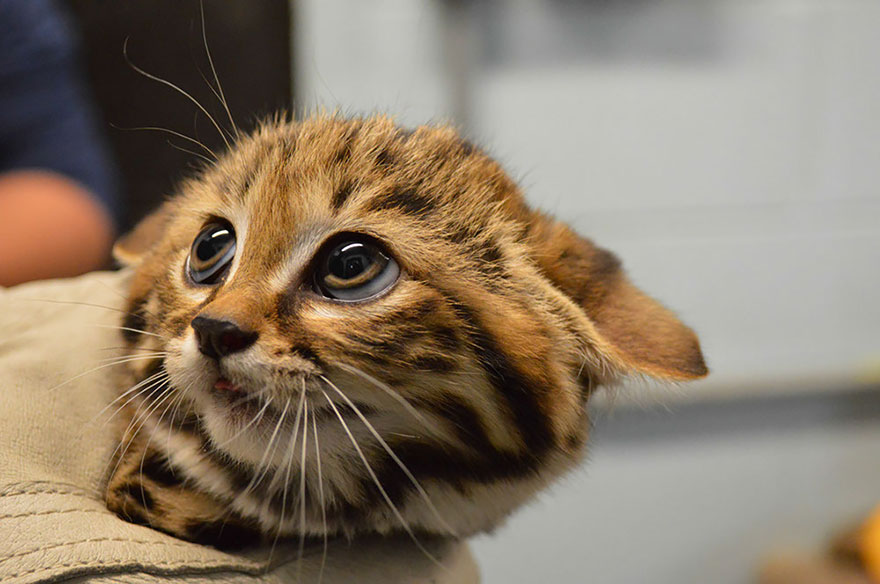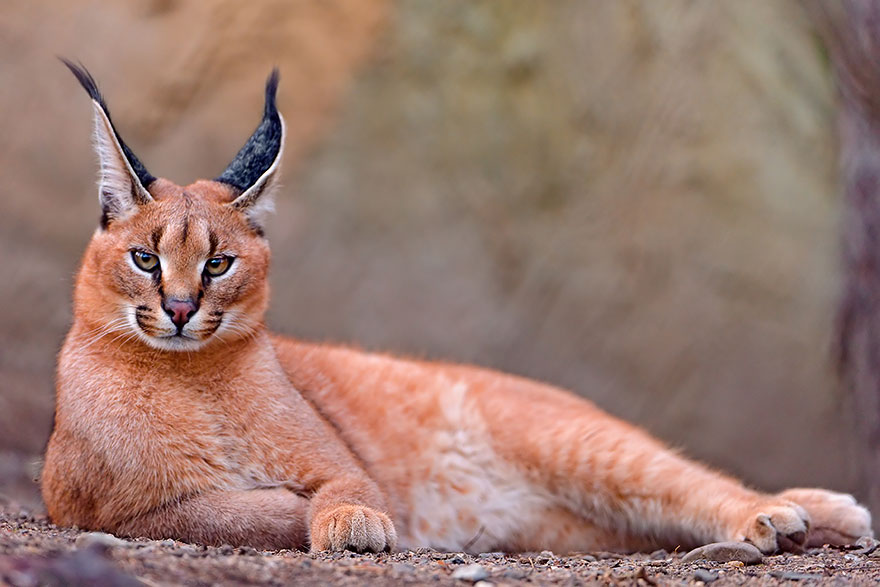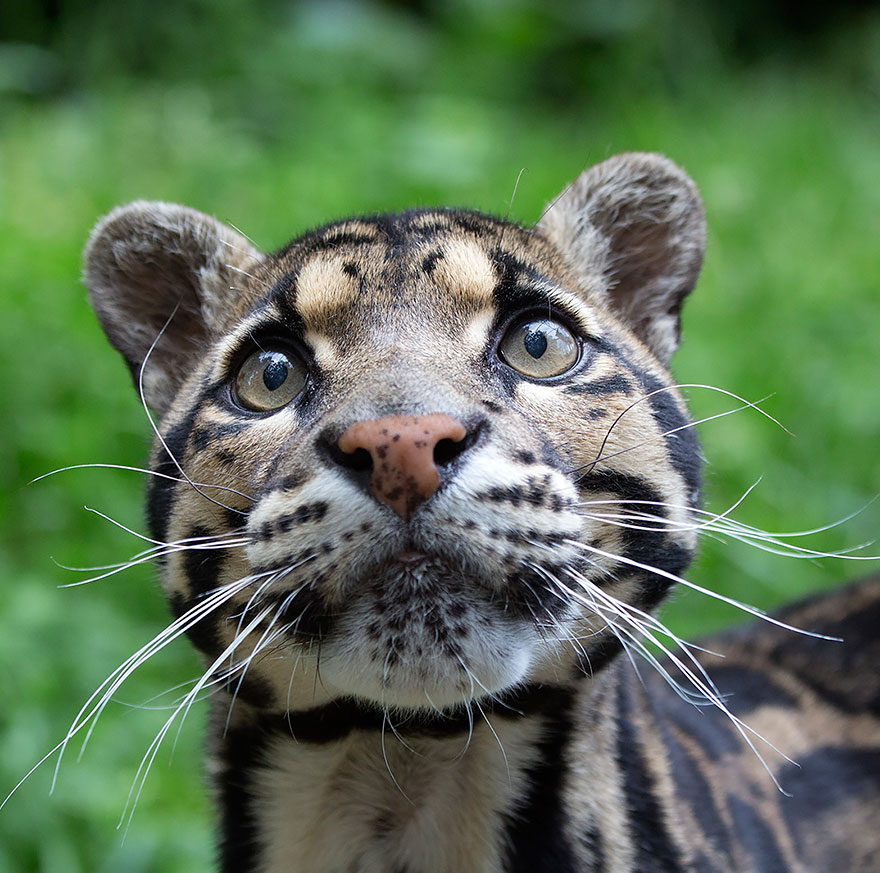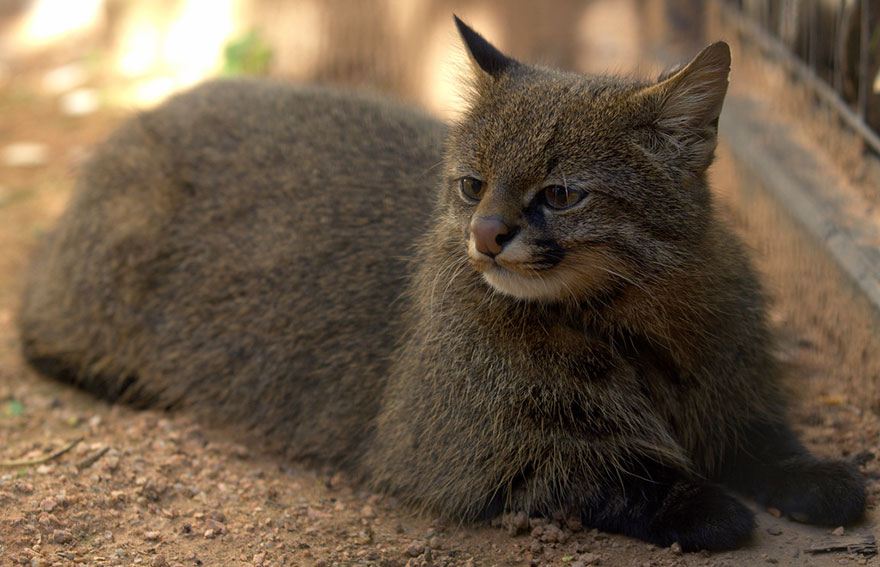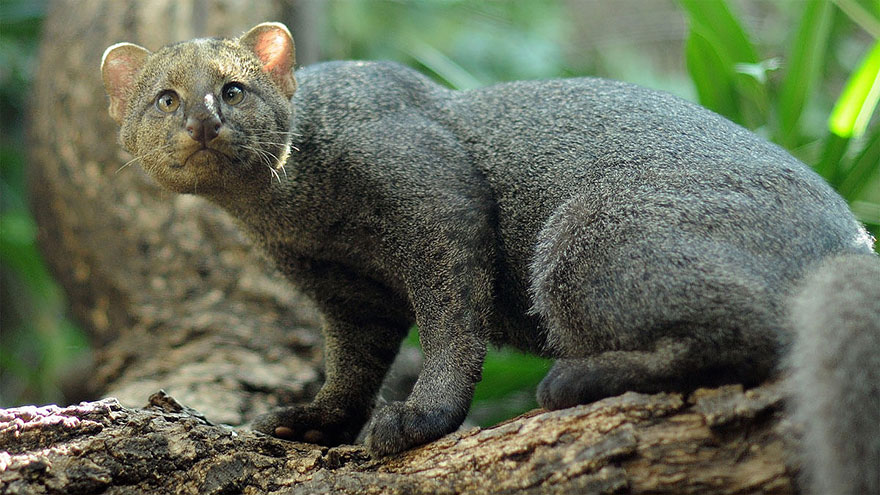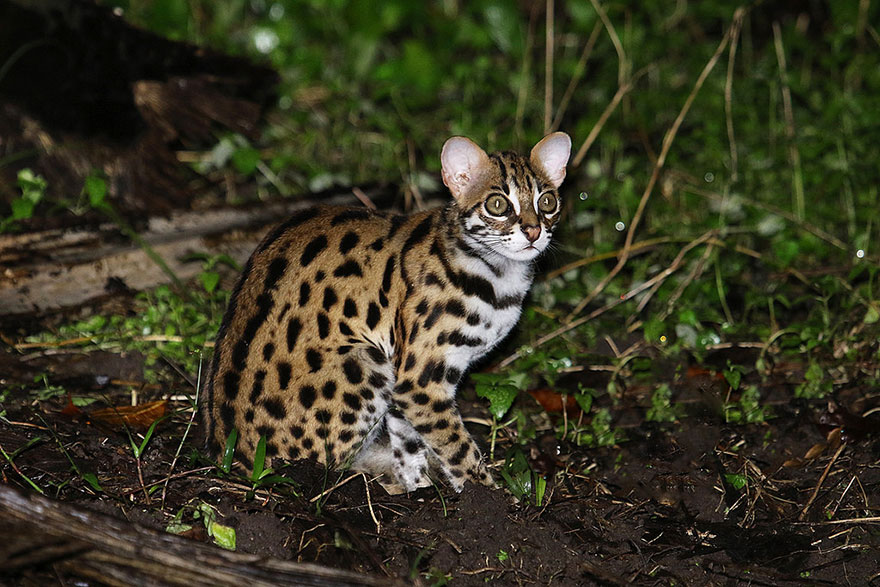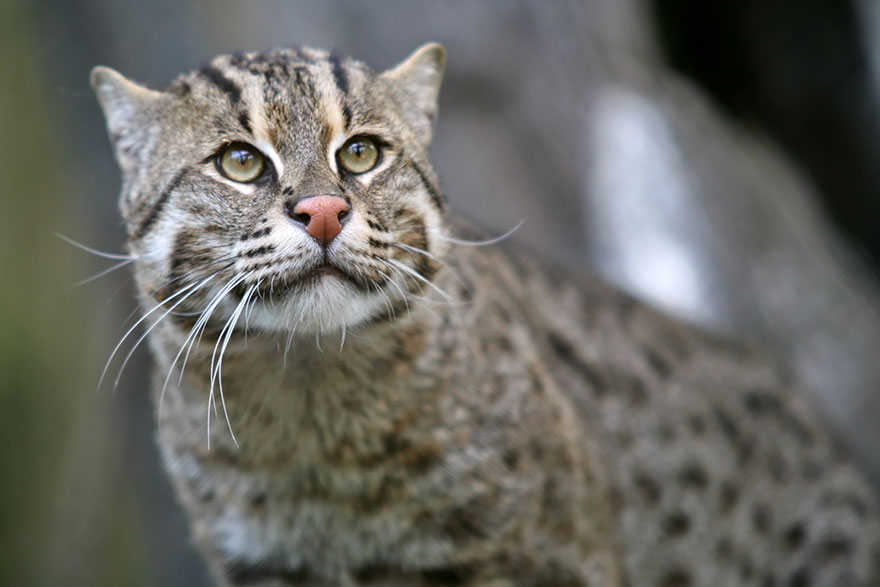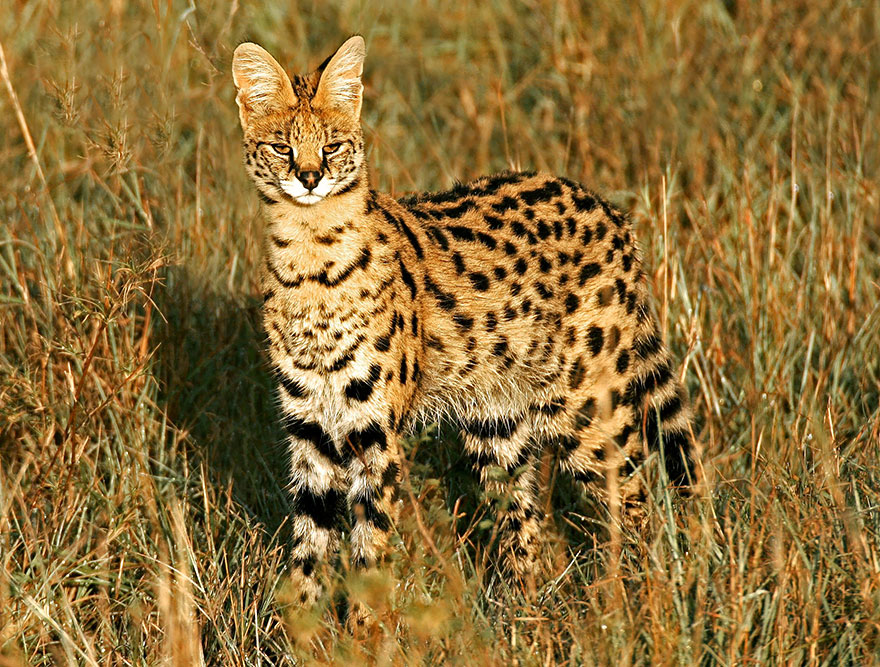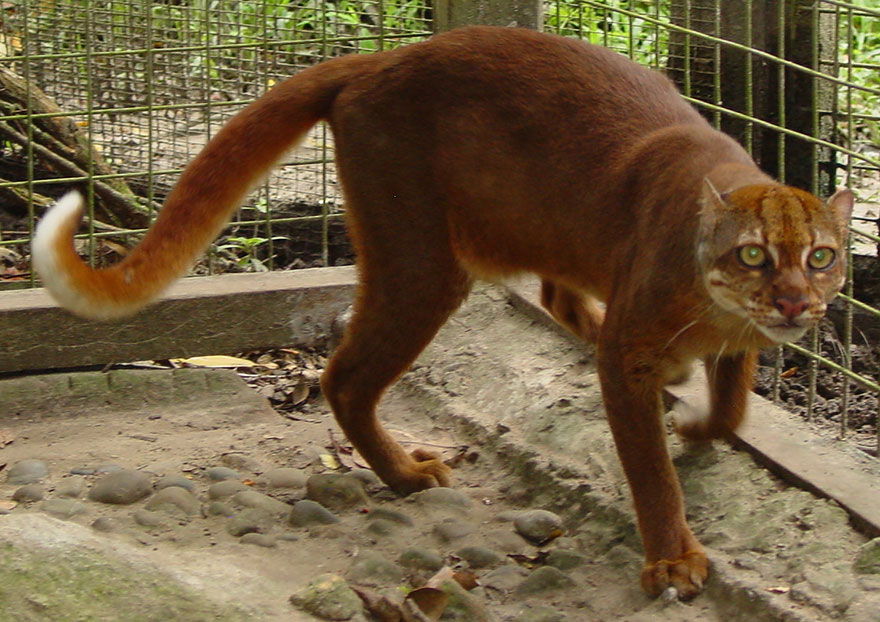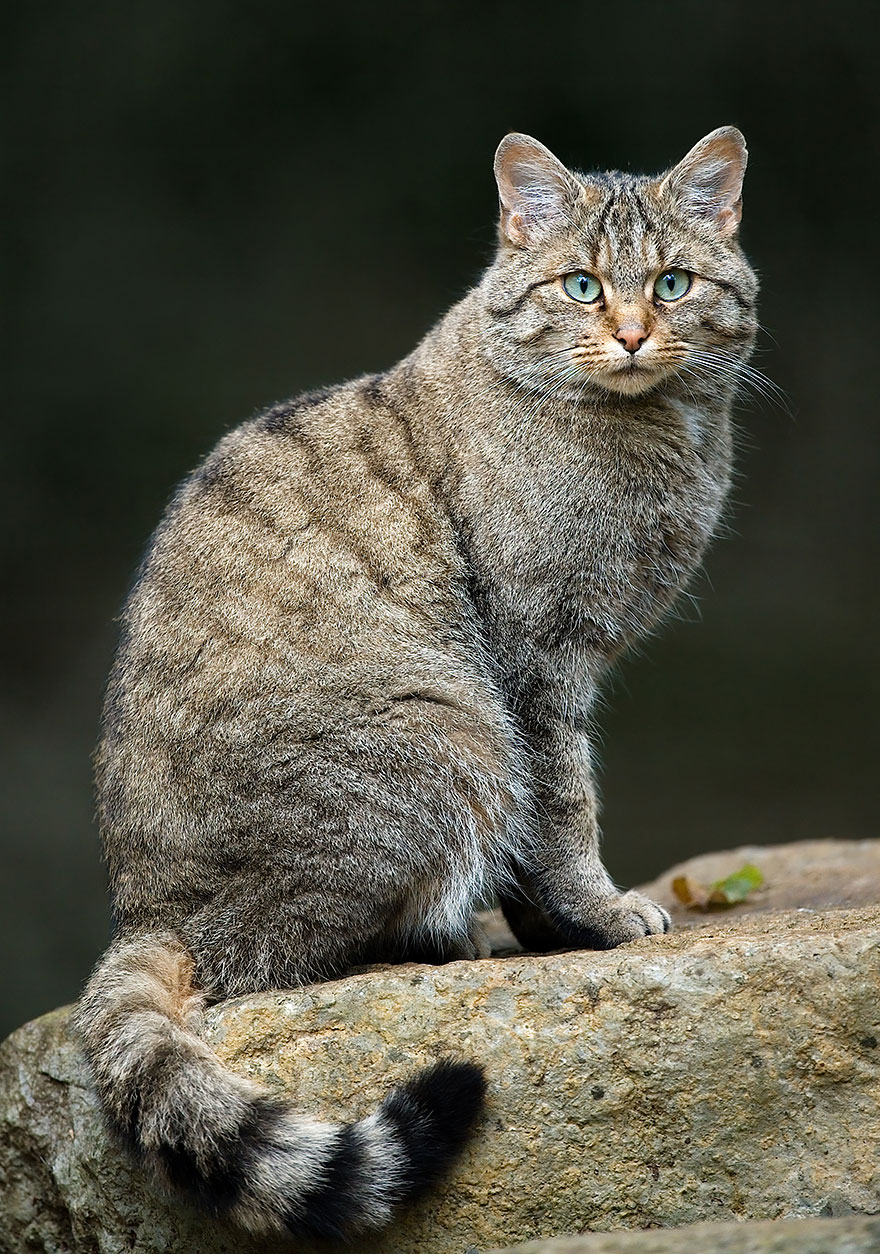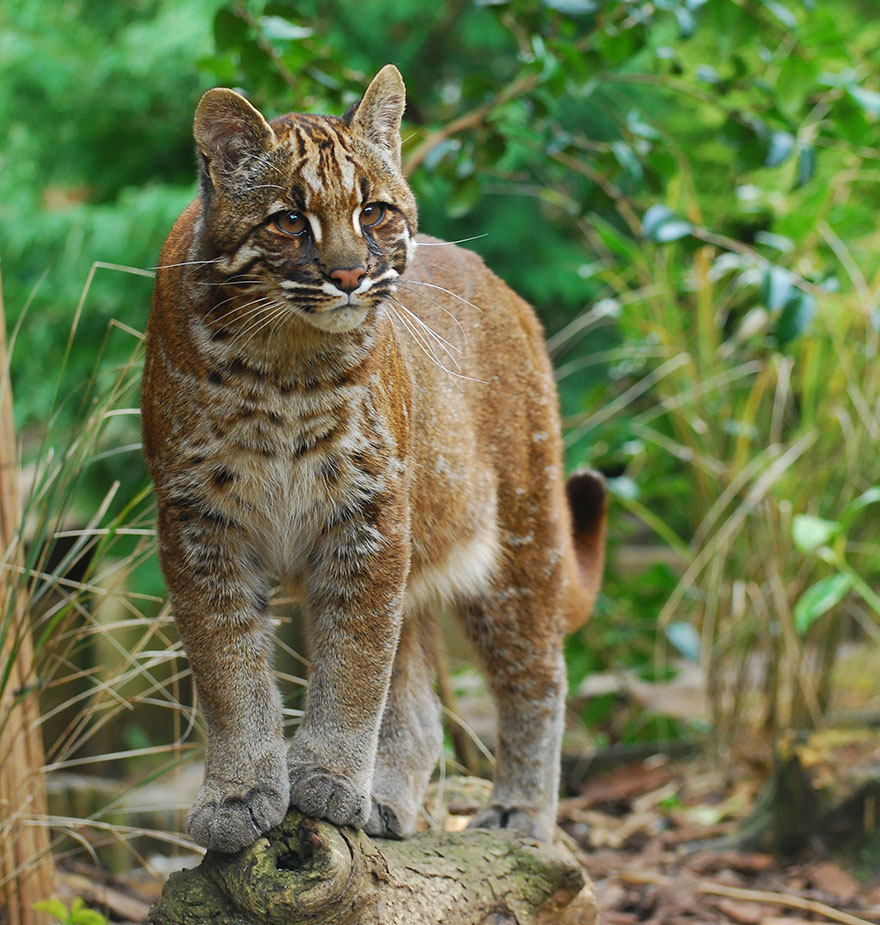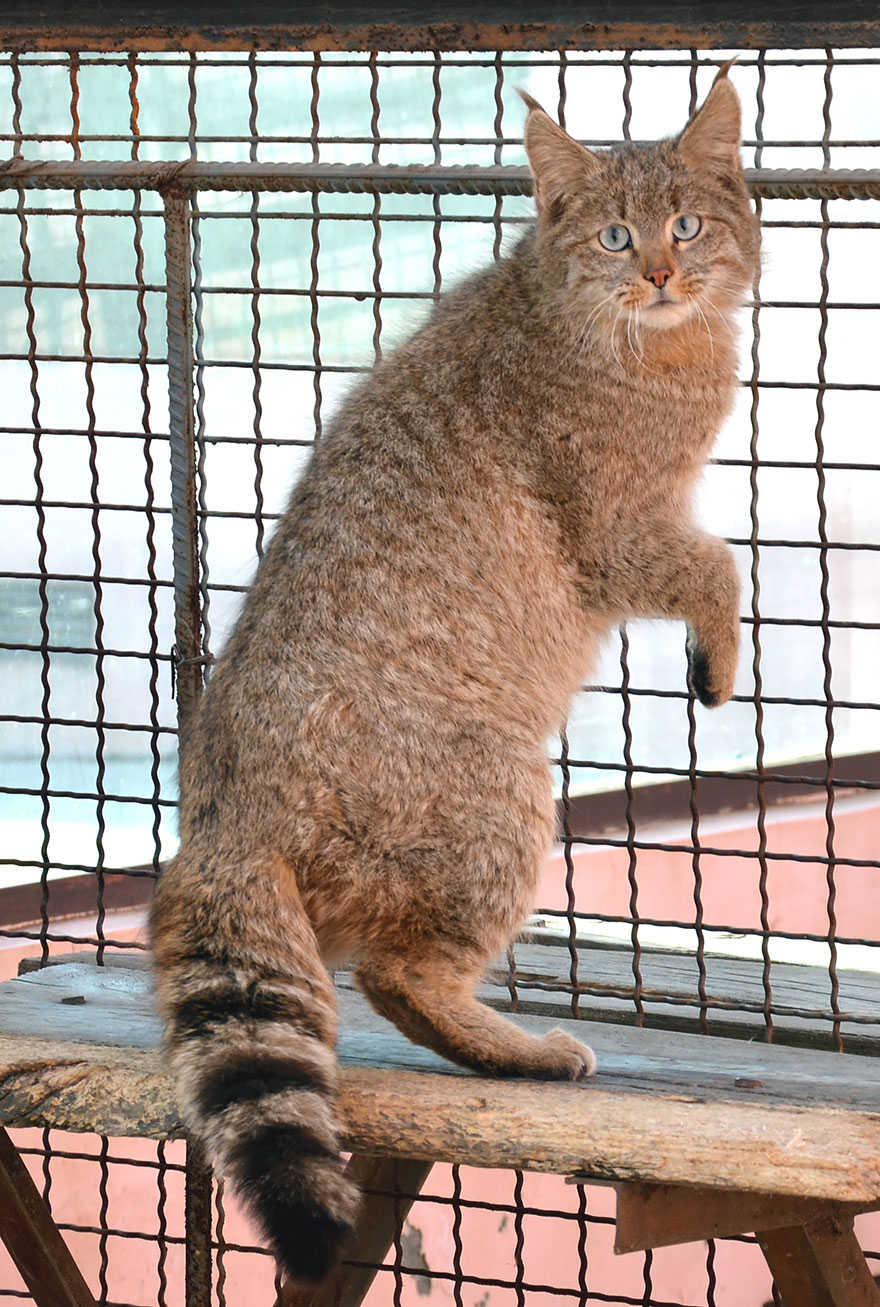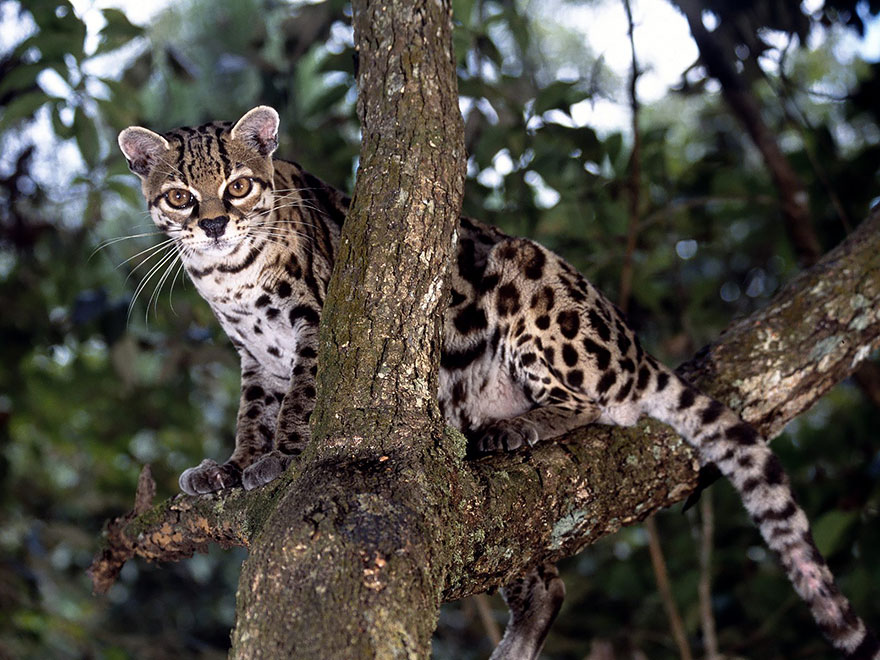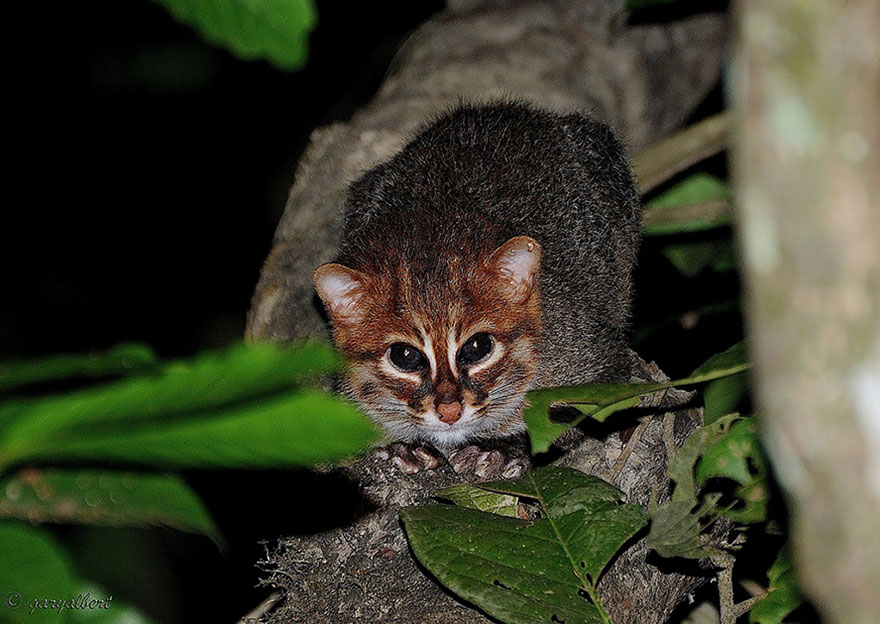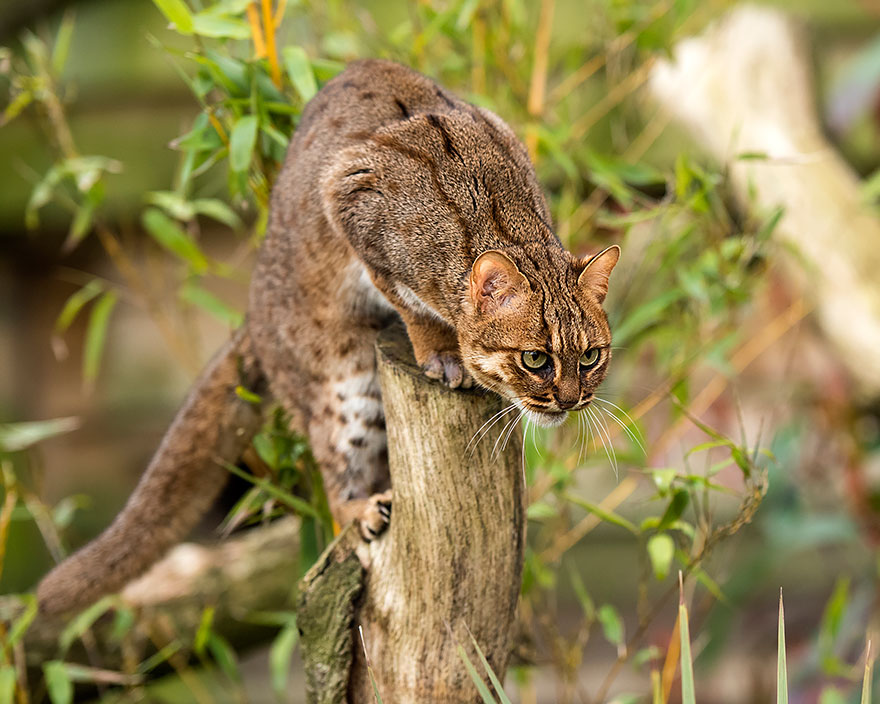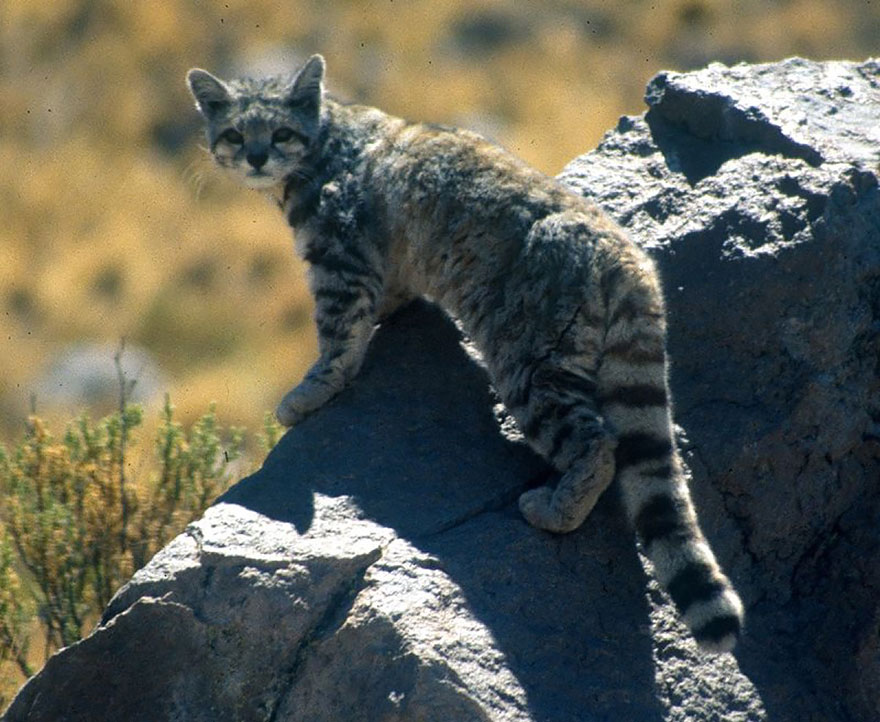We all know about the wild cats such as lions, tigers, cougars, leopards and even jaguars, but there's a whole world of small and big cats out there, especially a bunch of rare cat breeds that you've probably never heard of!
Cat species evolved into a distinct family (Felidae) roughly 25 million years ago. Since then, they've expanded all over the world and have evolved to match their environments. They still retain some things in common, however – just like your fluffball at home, very few of the wild cat breeds can taste sweetness. They are all obligate carnivores – they do not simply favor meat, they can't subsist on anything else. Besides lions, very few cats display any sort of strong social behavior, though some do hunt together or form loose colonies. It's no wonder our domesticated kitties are such arrogant, individualistic souls!
Scroll down for our pics of the most unusual rare cats below. From Asian to African cats, this list will surely broaden your perspective on felines!
(h/t: fnordsensei)
This post may include affiliate links.
Canada Lynx (Lynx Canadensis)
The main thing that characterizes the Canada Lynx is its huge snowshoe-like hind paws, as you can see in the photo. Interestingly, this Lynx is a very specialized hunter, mostly praying on, you guessed it, the snowshoe hare.
Sand Cat (Felis Margarita)
This timid cat is perfectly adapted to live in the deserts of Africa and Asia. The sand cat can live without water and endure the very harsh temperatures of the deserts by hiding in burrows during the daytime and hunting after dark.
Pallas Cat (Otocolobus Manul)
Though the Pallas cat, or Manul, is about the same size as a house cat, its dense and fluffy fur makes it look incredibly round and stocky. Titled as the most expressive cat ever, Manul even stars in a couple of viral memes.
Black-footed Cat (Felis Nigripes)
Known as the smallest wild cat in Africa, the Black-footed cat is extremely fierce when protecting itself. There's even a San legend saying that Black-footed cats can kill giraffes by puncturing their jugular vein.
Caracal (Caracal Caracal)
The first thing you notice looking at a Caracal is, of course, the beautiful tufts of hairs on its ears. These tufts are actually used for communication, as it is observed that these cats often shake their head to flick the tufts at other Caracals. Besides flaunting the tufts, these cats also purr, meow, and hiss, just like any other kitten.
Clouded Leopard (Neofelis Nebulosa)
The Clouded Leopard is an inhabitant of forests spanning the foothills of the Himalayas. Known for its distinct coat markings that make for perfect camouflage, Clouded Leopards are also the most talented climbers of the feline world.
Pampas Cat (Leopardus Pajeros)
The Pampas cat is one of the most secretive felines - little is known about their ecology and behavior. So little, actually, that the biologists can't even decide if it's a diurnal or a nocturnal animal.
Jaguarundi
The Jaguarundi inhabits various habitats - from tropical rainforests to deciduous ones to deserts and thorn shrubs. However, unlike most of the cats on this list, Jaguarundi mostly hunts in the daytime. And though they're pretty secretive, it has been observed that they are very cautious of traps.
I love seeing these pictures of cats I had no idea existed! I love cats and think they are wonderful!! I'm betting there are even more cats that we don't know about . . .
Leopard Cat (Prionailurus Bengalensis)
The most unexpected fact about the Leopard cat is that it was domesticated at least 5,000 years ago in Neolithic China, though other felines later replaced it. And you might also be surprised to learn that the Bengal cat is actually a cross between a Leopard cat and a domestic one.
Fishing Cat (Prionailurus Viverrinus)
The Fishing cat is one of the more unusual felines out there - it lives in swamps and wetlands, catching its prey by swimming long distances, even under water. Though hunting these cats is prohibited, their future is uncertain due to human activities altering their habitats.
Serval (Leptailurus Serval)
The slender Serval cats are truly the catwalk models of the feline world - they have the longest legs of any cat, relative to its body size. Besides its beautiful characteristics, Servals are also very efficient hunters, scoring 15-16 kills in a 24-hour period.
Bay Cat (Catopuma Badia)
The Bay cat falls into the Endangered animals' list as it is estimated that there are fewer than 2,500 mature individuals throughout their habitat. The Bay cat is also known for its enigmatic behavior - camera trapping surveys during 2003-2006 yielded a single picture with the Bay cat in it.
Kodkod (Leopardus Guigna)
The Kodkod is the smallest felid species native to the Americas. This tiny wild cat is also pretty rare as its population might comprise just around 10,000 mature individuals. Though the Kodkod is active both during day and night, it ventures out in the open only under cover of darkness.
Ocelot (Leopardus Pardalis)
The Ocelot's association with humans dates back to Aztec and Incan civilizations, where this cat played a significant role in their cultures. Like many other felines, Ocelots are occasionally kept as pets, with Salvador Dali being the most famous Ocelot pet keeper.
Wildcat (Felis Silvestris)
The Wildcat branches out to two different small wild cat species - the European Wildcat and the African Wildcat. The European species has a longer coat, a bushy tail and are a bit bigger than the African ones who sport short coats and a tapering tail. Interestingly, these Wildcats prefer to stay out of the trees, mostly choosing burrows as their dens.
Asian Golden Cat (Catopuma Temminckii)
The Asian Golden Cat is a native inhabitant of the northeastern Indian subcontinent, Southeast Asia, and southern China. However, since its habitat spans some of the fastest-growing countries, they are threatened by habitat destruction and deforestation.
Chinese Mountain Cat (Felis Bieti)
The Chinese Mountain Cat is endemic to China and lives on the north-eastern edge of the Tibetan Plateau. Until 2007 when camera traps pictured a wild specimen, Chinese Mountain Cats were only known by the six individuals living in Chinese Zoos.
Margay Cat (Leopardus Wiedii)
The Margay, a native to Central and South America, is a solitary nocturnal cat. This wild cat is a very skillful climber and spends most of its time hunting and resting in the treetops. It is also known that margays sometimes mimic the voice of their favorite prey, pied tamarin, which is rather unusual for a predator.
I feel so lucky that I once got to see this rare animal in the wild, especially since they mainly live in the trees and rarely touch the ground, beautiful!
Flat-headed Cat (Felis Planiceps)
The Flat-headed cat is another specimen on our list that is fond of fish. Native to the Thay-Malay Penninsula, Borneo, and Sumatra, this little cat lives in wetlands and hunt their prey in rivers. Not only do the Flat-headed cats love their fish, but they are also known to wash their snacks just like raccoons do.
Rusty Spotted Cat (Prionailurus Rubiginosus)
The Rusty Spotted Cat is one of the smallest wild cats. It is native to India, Sri Lanka, and western Nepal, where it stays in deciduous forests and grasslands. Since 2016, its global wild population is listed as Near Threatened as the Rusty Spotted Cats are affected by the loss and destruction of their prime habitat.
Andean Cat (Leopardus Jacobita)
The Andean Mountain cat, a native to the high Andes, is traditionally considered a sacred animal by indigenous Aymara and Quechua people. Though little, this cat is very hardy and well-adapted to live in arid terrains of high-altitude Andes.
Pets desired in order 12, 5, 9 14 and 11. And 2 for the funky name!
Pets desired in order 12, 5, 9 14 and 11. And 2 for the funky name!

 Dark Mode
Dark Mode  No fees, cancel anytime
No fees, cancel anytime 




